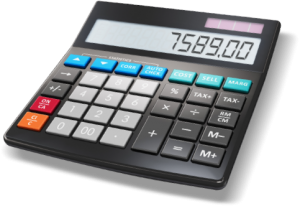Strength Of Mind, Body & Business
In his excellent newsletter, Paul Mitchell (The Human Enterprise) stresses the importance of understanding, recognising and then playing to your “strengths” in life and in business. He offers the following tips;
- Recognise a strength. It is something that:
- Restores you;
- Renews you; or
- Makes you feel strong!
- Identify your strengths. They are the things that:
- You look forward to doing;
- You are inquisitive about and can’t get enough of; and
- Doing them renews, re-energises and restores you.
- Play to them by applying 3 key questions:
- STOKE: How can I draw on them (your strengths) even more on a daily basis?
- START: What activities could I do to tap into my strengths?
- STOP: What can I drop that just doesn’t make me feel strong?
Which got me to thinking: Underlying our mental and emotional strengths is our physical strength.
Foundational Strength
So what should we be doing to put our body in order, as a platform for our strength in other dimensions?
It’s funny, isn’t it? An olympian has to be at the top of their game for just one event. A few extraordinary individuals such as Carl Lewis may dominate their scene for as many as 15 or 18 years, but a “business athlete” has to remain at the top of their game for decades! So what sort of training regime can you do to build a foundation of physical strength while running a business over that sort of timespan?
Probably a better question is, “So how long will you live – let alone last – if you don’t put some maintenance procedures in place?
The Very Basics of Physical Strength
- Diet.
- Quality: “Let your food be your medicine”, was Hippocrates advice and it still holds today (after all, nothing’s changed in the human body in the last 250,000 years, so what worked then should work now. Invest in the best fuel you can afford for your body. It’s the only vessel you have for navigating the Sea of Life and you’ll miss the scenery if you are spending most of your time on repairs.
- Quantity: Stop eating before you feel full. Get up from the table when you could still eat more, and watch how your body appeciates the gesture. We’re over-fueled to blazes, and many of us are driving around with a bag or two of cement in the boot.
- Query: Understand the difference between food and “stuff”. If whatever you are contemplating putting in your mouth was not a food 100 years ago, it’s probably “stuff”, and you not only can live without it – you probably will (live, that is). Would you consider running your Beemer on cheap fuel?
- Exercise
- Gallop: According to the Owner’s Manual your body needs to be run at around 75% of its maximal heart rate (that’s (220-age) x 0.75 beats per minute) for more than 40 minutes, 3 times a week.
- Groan: You can assume that your exercise period has started once you detect a light skin sweat. Keep it there for the duration. Less than this and you’re risking a loss of cardio vascular performance, muscle loss, fat gain, and a bunch of other entirely unnecessary nasties.
- Grunt: Exercising against resistance, whether that’s cables, stacks, springs, rubber bands or free weights, will promote muscle growth. Muscle metabolises fat. There is more than sufficient fat in a standard Western diet, and this type of exercise will contribute to controlling it. It will also build STRENGTH which is where we started for this article. Physical strength – the foundation of your other strengths, remember?
- Hydrate
- The average working adult runs at around 1 litre dehydrated (ie, they will reach ideal hydration after ingesting 1 litre of water). When you feel thirsty you are already around 1 litre of water short of ideal hydration. Without getting into detail, imagine running your car with a radiator half empty. The same is going on inside you.
- Coffee has a water base, true, but it is a diuretic and leeches water from your system. Alchohol has its own challenges, and there is strong evidence that the human metabolism just isn’t designed to handle any amount of alcohol. At the very least, limit intake to those indicated in current medical guidelines.
- The average adult can’t distinguish between the sensations of dehydration and hunger, and so overeats when they should be taking a drink of water.
- Sleep
- Learn your own sleep requirements and honour them. Some adults require 5 hours solid sleep to function at their best, others 6, others 8. Learn your own rhythm and honour it – or pay the price of high bloodpressure, weight gain, stress, and general mental disfunction (that’s a high price!)
- Understand that you run a “sleep bank” so that when you overdraw your bank with a short night’s sleep, you need to repay the debt soon to bring yourself back to optimal performance. Don’t run at a constant deficit or you’ll find yourself not only feeling below par but batting that way as well.
- Learn to use the 90 minute sleep cycle trick when having to get up early for a flight or distant meeting. Time yourself to get into bed 4.5 hours, 6 hours or 7.5 hours before you need to wake, and you’ll come out of sleep at the top of a sleep cycle, refreshed and ready to go. Try to fit in 5 hours sleep and you’ll feel groggier climbing up out of a descending cycle, than if you’d woken 30 minutes before at the top of a cycle.
- Relax
- You’re an adult now, so it’s about time you gave some thought to learning to meditate so that you can turn off the little rat running inside the wheel in your head. 20 minutes of meditation gives you the same renewal as 1 hours sleep.
- Meditation is a cool way to travel. Get in the plane. Meditate. Come out of meditation. You’re there. Shortest trips you’ll ever take, and no jetlag.
- If you don’t meditate, find an activity that entirely relaxes you and allocate the time you deserve to that pursuit. Whatever time you take for this will be added back at the end of your life in both hours and quality.
What’s your alternative?
If you’d like a more detailed set of instructions on the Health Basics outlined here, just email us .





